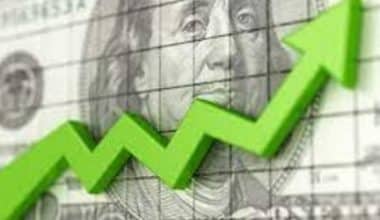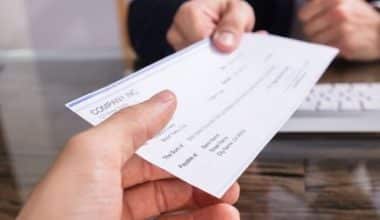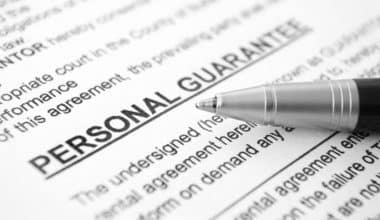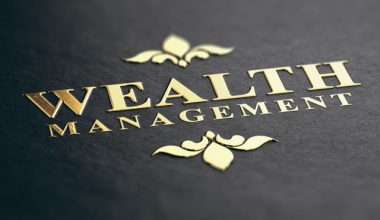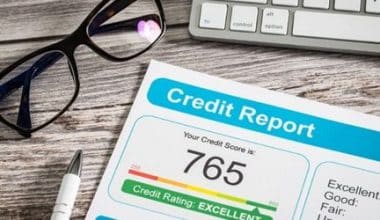If you own a business and have bad credit, getting a loan to purchase necessary equipment may prove difficult. For a business to keep producing goods and providing services after critical machinery breaks beyond repair, quick and inexpensive replacement is a must. This is why there are programs designed specifically for those with bad credit who need to finance machinery and tools. Learn how to get equipment financing even if you have bad credit.
What is Equipment Financing?
Equipment financing refers to the practice of obtaining a loan to cover the cost of purchasing machinery, whether it’s brand new or used. Owners can get the necessary tools for their businesses without having to spend their own money. Business owners can avoid fluctuations in cash flow associated with making payments from working capital by taking out a loan. Installment plans allow business owners to spread the cost of expensive machinery and tools over time rather than all at once. The combination of Trump’s new machinery and tools tax laws and the ability to obtain financing at lower rates could result in annual savings of several thousand dollars. Equipment financing also doesn’t necessitate any sort of collateral on the part of the business owner. Instead, you can use the machinery itself as collateral to safeguard your possessions.
Although equipment loans can differ slightly from lender to lender, they share many common features. Borrowers use equipment financing to make an outright purchase of machinery or other expensive items that can be used as security against their debt. A down payment is required to obtain one. The remaining sum will be loaned to you at an interest rate and repayment term agreed upon by both parties.
The equipment will be yours to keep once the loan is paid off. If you need to purchase equipment like computers, telephone systems, tractors, heavy-duty machinery, and more but don’t have the cash on hand, equipment financing is a great option. Lenders frequently take advantage of equipment as collateral. If you don’t pay, they’ll seize it. In the event that your business fails to make its loan payments, some lenders may also require a personal guarantee.
What is Bad Credit Equipment Financing and Leasing?
Even if you have a less-than-perfect credit history, it is still possible to get a lease or loan for the entire cost of the new or used machinery or computers your company requires. Financing or leasing the purchase of computers, machinery, vehicles, or any other equipment your business may need is quick and simple when you apply for a loan or lease with Crestmont Capital. Obtaining a loan or lease for business equipment is easy through Crestmont Capital.
Commercial Equipment Financing And Leasing Options for Bad Credit
Working with Crestmont Capital means gaining access to a group of equipment leasing experts who are committed to ensuring that businesses across the United States have access to the tools and resources necessary for sustained growth and success, even if their rivals have more financial resources.
They offer financing options for all of the machinery and tools essential to running a successful business. They also offer financing options for the machinery and tools that will take your company to the next level, whether you are planning an expansion or simply replacing outdated machinery. Leasing new or used equipment, including technology, furniture, vehicles, and heavy machinery, as well as consumables, installation, and other costs can all be financed by this company.
Benefits of Bad Credit Equipment Financing
If you have bad credit, you may not get the best rates and terms on equipment financing but there are still benefits to using this product.
#1.Easy Application:
Applying is simple, and you can do it online from the convenience of your home or office, even if you have bad credit. It shouldn’t take more than a few minutes to complete.
#2. Equipment Acts as Collateral
It shouldn’t take more than a few minutes to complete. If you decide to pursue equipment financing, the equipment itself will function as collateral. Lenders sometimes stipulate that all of a company’s assets be pledged as security. Lenders sometimes stipulate that all of a company’s assets be pledged as security.
#3. Flexibility:
Most creditors will finance the purchase of any machinery or tools your company needs to function. The equipment you purchase with your loan can range from computers and fax machines to bulldozers and excavators.
#4. Multiple Repayment Options
Lenders who focus on providing bad-credit equipment financing typically provide a number of different repayment options. There is the option of taking out a loan for a shorter period of time and paying less interest overall or taking out a loan for a longer period of time and paying less each month.
How Bad Credit Affects Equipment Financing
Loan providers can gauge your repayment reliability based on your credit score. If you have poor credit, lenders may be hesitant to extend credit to you because of the risk you pose. The good news is that many financial institutions exist to help people with less-than-perfect credit by providing loans with more flexible requirements.
When deciding whether to grant a loan for the purchase of machinery, these financial institutions look at more than just your annual revenue. However, keep in mind that business owners with poor credit histories may need to make larger down payments or accept higher interest rates than their more creditworthy counterparts.
What Is No Credit Check Financing?
It’s possible to get a loan without having your credit checked with a no-credit-check loan. If you have bad credit and don’t think you’ll be approved for other forms of financing, you might consider applying for one of these. These are some examples of loans that do not require a credit check:
#1. Payday Loans
Payday loans are short-term loans that are typically repaid in full when the borrower’s next paycheck is received. Within two to four weeks, you should be able to make the repayment. These loans don’t care about your credit history and can help you get by until your next paycheck.
What Is a Finance Lease for Equipment?
Leasing allows business owners to get their hands on vehicles, machinery, and equipment that they otherwise might not have access to. Capital leases and operating leases are the two most common kinds of equipment leases.
#1. Long-Term Financing Through Capital Leases
Typically, the lessee does not have the option to terminate a capital lease during its term. Capital leases are a common way for businesses to make sure they can use an important piece of machinery for a long time. A capital lease is ideal for a piece of equipment that will be used frequently and for an extended period of time, such as a production machine in a factory. For the same reason, a business with a warehouse might decide to rent some forklifts. If you’re leasing machinery under a capital lease agreement, you’ll have to pay for repairs and upkeep yourself. They also have to get insurance to cover loss or damage and pay any taxes that are due on the machinery.
#2. Operating Leases
Unlike capital leases, which typically last for several years, operating leases typically last for only a few. With proper notice, the lessee can terminate the lease and return the equipment before the end of the term. The lessor keeps the equipment under an operating lease.
Can You Get a Loan for Working Capital?
Working capital is a loan used to fund regular business operations; these loans are not intended to purchase long-term assets or investments, but rather to meet an organization’s working capital needs.
What Is the Interest Rate on an Equipment Loan?
The average interest rate for a loan used to purchase equipment is between 2% and 20%. The spread is as large as the tractor you’re trying to finance because the interest rate is primarily on your credit history and the length of time your company has been operational. The more favorable the interest rate, the higher the credit score must be.
How Hard Is It to Get Equipment Financing?
Although lenders will still check your credit history if you apply for equipment financing, you can still get it with fair or bad credit. Small business owners with credit scores as low as 550 may be able to secure funding from some equipment lenders, but they will likely incur higher interest rates and have shorter repayment terms.
What Credit Score Is Needed for an Equipment Loan?
Even so, most loan providers favor business owners with personal credit scores of at least 600 or business credit scores of at least 75 when making loans to businesses. Make sure your credit is in good shape before applying for a loan to purchase equipment.
Can I Get a Loan With a 581 Credit Score?
“Fair” eligibility requirements start at a FICO® Score of 581. Getting a mortgage, car, or personal loan when you have a credit score of 581 can be challenging. Fair credit borrowers are typically rejected by lenders due to the high default rate associated with such borrowers.
Can I Get a Loan With a 385 Credit Score?
It will be challenging to receive a loan or an unsecured credit card with a credit score of 385, so focusing on restoring your credit is essential before applying for large purchases like a car or house.
Best Companies for Bad Credit Equipment Financing
Here are the seven best companies for bad credit equipment financing:
- Smarter Finance USA
- ELease
- National Business Capital
- Balboa Capital
- SBG Funding
- National Funding
- First Capital Business Finance
FAQs
How much of a loan can you get with a 500 credit score?
Some of these companies will lend you up to $10,000. MoneyMutual, CashUSA, and CreditLoan are three of these companies you can try.
Can I get a personal loan with a credit score of 550?
With a 550 credit score, you may be able to obtain a personal loan, but you may not be approved for a large loan or one with a low annual percentage rate.
What is the lowest credit score for a loan?
Borrowers typically need a credit score of 610 to 640 to even qualify for a personal loan. Borrowers typically need a credit score of at least 690 to qualify for a lender’s lowest interest rate.
Related Articles
- BUSINESS LOAN FOR EQUIPMENT: How To Get Business Loans For Equipment
- SMALL BUSINESS EQUIPMENT LOAN: Types & Basic Requirements
- Capital Resources Definition: Why It Is Key For All Businesses
- BEST TIME OF THE YEAR TO LEASE A CAR: A Complete New Year Guide
- HOW DOES LEASING A CAR WORK? Detailed Guide

